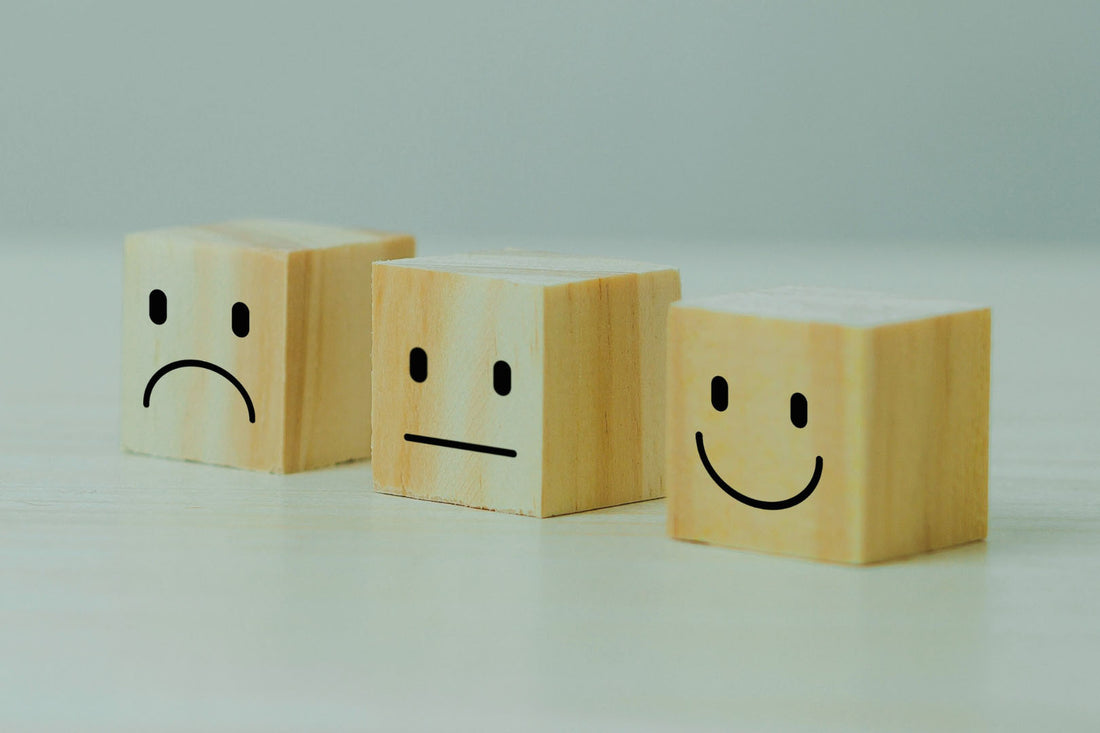We live in a world in which optimism is positioned as a kind of panacea in all media and in many life situations, despite all crises. According to the motto "if you stay positive, everything will be fine". Negatives are often ignored, because they don't sell as well as supposedly inspiring messages. The absolute focus on positivity, which no longer allows anything else, is toxic and poses dangers not only to our well-being in general, but especially to our mental health. Which ones?
Repression of negative emotions
We have all learnt that nothing is one-sided and it also means that nothing can have only one quality, e.g. nothing is good without exception. Everything has advantages and disadvantages. The famous coin with its two sides. At the same time, especially if you deal with topics around well-being and perhaps follow inspirational pages or coaches on social media, you can quickly get the picture that everything can be great if you only have the right mindset, a positive attitude to life. You run the risk of walking on very thin ice of one-sidedness by forcing yourself to see only the good and the beautiful. But this does not make the bad and the ugly disappear. Rather, you begin to no longer admit these things. This is repression and the opposite of positive. The negative is part of life, all the events, feelings and thoughts that are exhausting, draining and burdensome. Instead of ignoring them because they do not fit into a supposedly positive mindset, we should accept them and rather look for the positive in the negative instead of simply excluding it.
Trivialising problems
When you're in a crisis, people will "help" you with all kinds of phrases. No one means any harm, it is rather the desire to give comfort paired with a kind of helplessness in a situation in which one does not know how to comfort. The result is then something like "everything will be all right". Maybe it is, but for now it's not fine and it's perfectly okay to feel that way. It's not good today and it might not be good tomorrow. That's the way it is and it doesn't get better if you try to put the situation into perspective with rosy prospects for the future or otherwise flattering words. The solution to something bad is not to replace it with something positive. Rather, the solution is to realise that there is no solution, but to see, accept and respect the downsides as such. This is work, emotionally highly challenging and absolutely meaningful. Because dealing with crises appropriately makes us stronger.
Guilt and balance
When the focus on the positive gets stuck in an attitude of expectation towards oneself, this can lead to a shifted scale of values in which there is only room for the good. A negative scale suddenly does not exist, is simply ignored or not seen. At the same time, however, we are bombarded with negativity on a daily basis. If we suddenly cannot adequately evaluate, classify and appreciate it, conflicts arise within us and at some point also feelings of guilt because we feel as if we are incapable of seeing life positively. The problem, however, is not that we are emotionally impotent, but that we have a false image of what is happening. It's okay to feel bad, it's okay to be in a bad mood. As long as this is not the permanent state, everything is okay, because the sum of everything we experience should not be negative or positive, but simply okay. There is no perfect happiness and happiness is one of two poles, but the healthy middle is between the poles and there it is just okay and not plus or minus. In this respect, the only thing we owe ourselves is balance - with ourselves, with the world, with the pros and cons, with every ray of light and all the shadows. And finally, balance leads to contentment, which is much more realistic and achievable than happiness.










